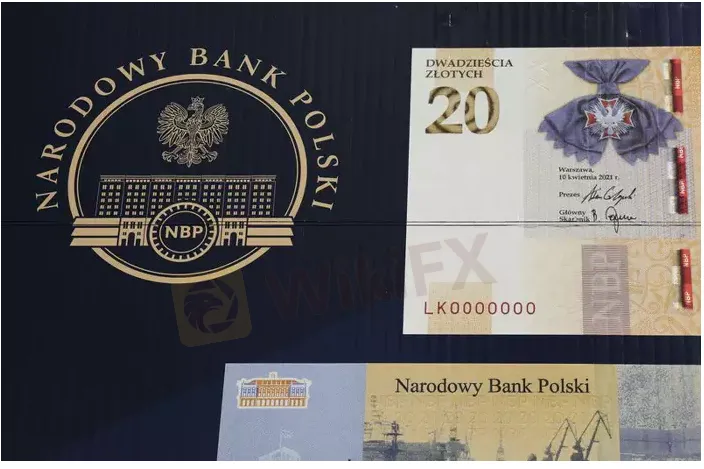简体中文
繁體中文
English
Pусский
日本語
ภาษาไทย
Tiếng Việt
Bahasa Indonesia
Español
हिन्दी
Filippiiniläinen
Français
Deutsch
Português
Türkçe
한국어
العربية
Polish central bank in wait-and-see mode, says governor
Abstract: The National Bank of Poland (NBP) will wait until its next inflation projection in November before deciding if more policy tightening is needed, its governor said on Thursday, after the Monetary Policy Council (MPC) decided to leave rates on hold.

The National Bank of Poland (NBP) will wait until its next inflation projection in November before deciding if more policy tightening is needed, its governor said on Thursday, after the Monetary Policy Council (MPC) decided to leave rates on hold.
Wednesdays decision to leave the main interest rate at 6.75% followed a run of 11 consecutive hikes, and left markets wondering if the move marked the end of the cycle or if policymakers were merely taking a break.
“This is a pause in the rate-hike cycle, but not the formal end of the rate-hike cycle,” Adam Glapinski told a news conference.
“In November another inflation report will be published, which … is the most important document that allows one to look at the coming quarters in the best way.”
Glapinski reiterated his view that inflation in Poland was mainly caused by external factors, but said there were signs that shocks in commodity markets that had fuelled price growth were easing and that he expected inflation to fall in 2023.
The Polish zloty softened as Glapinski spoke, and was down 1.36% against the euro at 1500 GMT.
“Theoretically, the NBP governor is declaring that this is not the end of the rate-hike cycle, but the zloty has weakened since the beginning of the conference, as many other comments from the governor indicate that the end is near,” ING analysts said on Twitter.
“We hear a lot about disinflationary factors, but little about inflation risks, which can be worrying.”
The Polish decision to leave rates on hold came as other central banks in central Europe had signalled an end to their policy-tightening cycles.
In Hungary the central bank raised its base rate by a larger-than-expected 125 basis points to 13% in September but said it was ending its rate-hike cycle amid a slowing economy, while in the Czech Republic policymakers kept rates steady at 7.00% for a second time in a row.

Disclaimer:
The views in this article only represent the author's personal views, and do not constitute investment advice on this platform. This platform does not guarantee the accuracy, completeness and timeliness of the information in the article, and will not be liable for any loss caused by the use of or reliance on the information in the article.
Read more

Top 10 Trading Indicators Every Forex Trader Should Know
Master the top 10 Forex trading indicators to analyze real-time Forex quotes, trends, and market signals. Learn strategies to boost accuracy and avoid mistakes.

Geopolitical Events: What They Are & Their Impact?
You've heard many times that geopolitical events have a significant impact on the Forex market. But do you know what geopolitical events are and how they affect the FX market? Let us learn about it today.

Why Do You Feel Scared During Trade Execution?
Trade execution is a pivotal moment for traders. It is when analysis turns into action, and potential profits or losses become reality. However, for many traders, this moment is accompanied by fear. Why does this happen, and how can you address it?

WikiEXPO Global Expert Interview: Simone Martin—— Exploring Financial Regulation Change
In the midst of financial innovation and regulation, WikiGlobal, the organizer of WikiEXPO, stays abreast of industry trends and conducts a series of insightful and distinctive interviews on pivotal topics. We are delighted to have the privilege of inviting Simone Martin for an in-depth conversation this time.
WikiFX Broker
Latest News
Geopolitical Events: What They Are & Their Impact?
Volkswagen agrees deal to avoid Germany plant closures
Top 10 Trading Indicators Every Forex Trader Should Know
TradingView Launches Liquidity Analysis Tool DEX Screener
MultiBank Group Wins Big at Traders Fair Hong Kong 2024
WikiEXPO Global Expert Interview: Simone Martin—— Exploring Financial Regulation Change
'Young investors make investment decisions impulsively to keep up with current trends' FCA Reveals
Why Do You Feel Scared During Trade Execution?
CySEC Settles Compliance Case with Fxview Operator Charlgate Ltd
Malaysian Influencer Detained in Taiwan Over Alleged Role in Fraud Scheme
Currency Calculator


